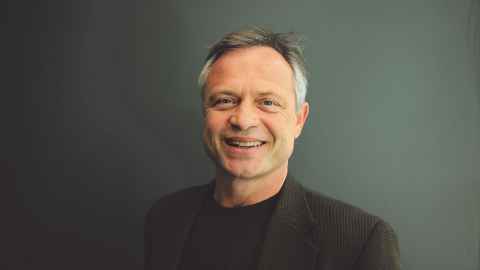The human advantage in the age of machines
21 April 2020
Honouring what it is to be human is how we can best respond to the change Artificial Intelligence and Big Tech are bringing to the nature of work.



There's a lot of talk about machines taking our jobs. The concern is understandable. But rather than frame this as a humans versus machines dilemma, we need to change the narrative by acknowledging that machines are and will continue to do some things better than humans, but equally humans will always do some things better than machines.
The tendency is to cast our big brains as having evolved for complex cognitive tasks. But this is only partly right. Our brains do handle complex cognitive tasks better than other primates but the tasks have always been social in nature. In our pre-history we needed our brains to figure out where the resources were and how to create tribal peace and cooperation to survive in a hostile environment. At heart human development is the story of the questions we ask and how we work with each other to find responses to those questions.
Being human
In an age where machines are much more pervasive, the ability to ask questions and connect with each other becomes more important than ever. The risk is that social media platforms are not necessarily good for building social empathy. We might be sharing information about ourselves but we are not necessarily connecting with others in a meaningful way.
Without meaningful connection there can be no real understanding. So when we do this we are sacrificing important and unique characteristics about being human when we need them more than ever.
Working closer with machines also means ensuring they work for us. In the first Industrial Revolution, humans had to fit around the design of machines. In the latest iteration of the Industrial Revolution, the reverse should be the case and technology has progressed to achieve this.
We need to be smart and fussy consumers of technology, especially in our workplaces. If an
Interface is clumsy, push back and demand that it be redesigned so it works well for the purpose you want. By doing this we preserve the part of our work that is human and keep it sacred. This has to be a collaborative effort where we co-evolve with machines by insisting that our work and life with machines becomes more natural, supportive and effective.
In this way technology makes us better humans because conscious co-evolution reminds us what it means to be human, something that often becomes blurred in our fast-paced lives where we often feel driven by technology rather than the reverse.
In our fast-paced lives where we often feel driven by technology rather than the reverse.
Developing as humans should be our goal. When the world chess champion Garry Kasparov was famously beaten by IBM’s Deep Blue computer more than 20 years ago, the headline for Newsweek’s cover story was “The Brain’s Last Stand”. I prefer Kasparov’s reflection on the match much later in his life. Despite his defeat Kasparov said he viewed the episode with great optimism. He said that machines have processes and humans have passion, machines can do high-level analytics and answer questions, but Kasparov said humans ask the best questions.
Commentary by Darl Kolb, Professor of Connectivity, University of Auckland
The Challenge is a continuing series from the University of Auckland about
how our researchers are helping to tackle some of the world's biggest challenges.
To republish this article please contact: gilbert.wong@auckland.ac.nz